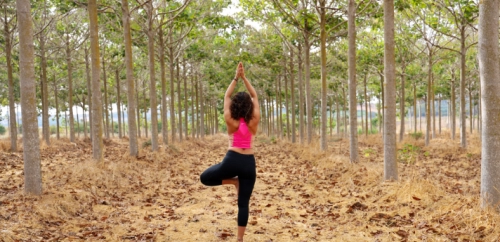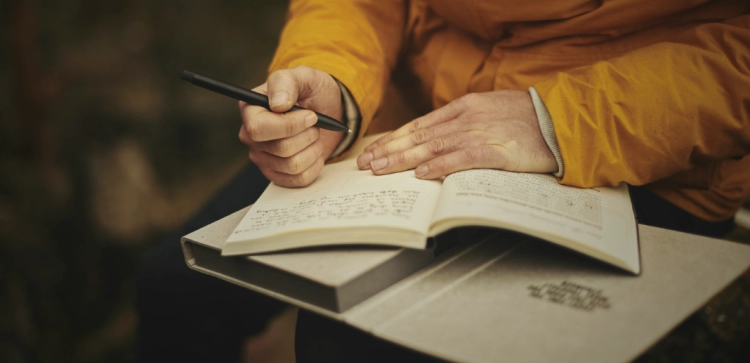21 Easy To Follow Tips For Traveling Alone

Traveling with friends or family can be a good experience for many people, even traveling with people you may have just met during the trip.
Traveling with others can expose you to adventures and opportunities you may not have thought of or stumbled upon had you traveled alone.
But, there can be downsides to traveling with others rather than traveling alone. For one, you will almost undoubtedly have to make compromises in the things you want to do if those you are traveling with do not want to do them as well.
You may also have to make compromises and agree to do things and go places that you would prefer not to.
For this reason, and of course others, many people prefer traveling alone. Traveling may mean a short trip to another city or country, or it could mean a more lengthy trip, spanning weeks, months, or even years.
Traveling alone allows you to make your own plans without having to compromise on what you want in order to meet the needs of others. It enables you to have the ability to change your course and plans on the spot, prolong your stay in certain places, or shorten them.
Though traveling alone can give you a much greater sense of freedom, there can be many challenges that you will need to face and deal with, and since you are traveling alone, you will usually have to face these challenges on your own.
Knowing, at least in part, what to expect can help you face these challenges and makes things a little bit easier.
Here are a few tips that can help you be a little bit more prepared for traveling alone:
- Always Focus On Safety And The 4 Rules Of Preparation
- Avoid Overpacking, Make A List Of The Essentials
- Bring A First Aid Kit With You
- Be Confident
- Join Free And Paid Guided Tours
- Hostels Are Your Friend, But Choose Wisely!
- If You Arrive Late At Night At Your Destination, Book Accommodation Close To The Airport
- Be Friendly And Approachable
- Use Map Apps
- Share A Copy Of Your Travel Details With Someone Back Home
- Create A Playlist
- Conclusion
Always focus on safety and the 4 rules of preparation
It is no secret that traveling alone in the world can be pretty scary and risky at times. Some areas may be considered safe, while others may be more dangerous due to a higher crime rate. Regardless of where you are going, here are some fundamental rules that can help keep you safe as long as you keep them in mind:
-
Plan your accommodations (as best as you can).
There are many hostels, motels, Airbnbs, and other accommodation types out there. It is a great idea and time saver to know beforehand what options you have for accommodations. Once you find that out, it is worth your time trying to get to know the area, either by reading about it, asking about it, or even spending some time in that area. This will also help you better understand how to get from place to place if your primary way of transportation is by buses or trains. It's good to know where the closest stations are to where you are staying. -
Plan your transportation.
Will you be relying on buses or trains as your primary way of transportation? If so, it's a good idea to learn about the area you will be staying in and the locations you will be traveling to. This will allow you to make sure that you know where to go when you need to catch a bus or a train. Knowing the transportation schedules can also help you make sure you don't end up missing that last bus by mere seconds, requiring you to either take a risky walk to your accommodations or spend a lot of money on a cab. It will also allow you to better plan your day by knowing when and how to get to the different locations you plan on visiting. If your primary way of transportation is by car, it's also a good idea to know what the parking situation is in the area you will be staying in and at the locations you will be visiting. If the accommodation you are staying at has no parking lot and you have to park at some distance from the building, it may be a better idea to get there early, some areas could be dangerous to walk alone at night. -
How much money do you need?
The budget your travels require should be thoroughly planned out and distributed to the reasonable needs and at the right amounts. Understanding the above points can help you manage your budget better. Knowing beforehand what your primary form of transportation will be and where you will be spending your nights can help you plan your budget for the rest of the things you will need to spend it on. If the unfortunate happens and you have to change your accommodations, you miss your bus or train, or your car has an issue, your budget distribution may need to change. In cases like this, it's a good idea to keep in mind that these things can happen, like other unexpected things. Leaving some breathing room in your budget for times like these can help make things a lot easier and get you out of the mess quicker. -
Let someone know where you are.
This may be an obvious one, but certainly is not one to take lightly. Whether you are going to a location that is considered safe or not, anything can happen. The areas you are planning on visiting may be considered safe, but, there may be other visitors besides yourself or locals that may not have the best intentions in mind. Besides other people, we cannot know the future or what will happen. Accidents can happen, and they are not always in our control. It's for these reasons that it's so important to let other people know where you are and where you are going so that if something does happen, they will be able to help. Besides the need for help for the unfortunate possibilities mentioned above, letting others know where you are and where you are going may lead to some great recommendations that you may not have thought of, so there are also positive reasons for this one.
Avoid overpacking, make a list of the essentials
Overpacking is, unfortunately, one of the easiest things you can do before traveling. Without even noticing, your pack could already be full, and you haven't even gotten to your winter clothes!
The reasons for this can be many, it could be that we are over-cautious and believe that we need more than we actually do, so we end up taking more than we need. It could be that we are used to living in our homes, filled with all of our belongings, that we feel that one small backpack or suitcase cannot be enough for all want to take, so we stuff it full of things we don't really need on the trip.
While overpacking is not the worst thing in the world, and some would argue that it's better than under-packing, it is still probably best to avoid it.
Overpacking may not be an issue early on in the trip, but as the days go on, you may find that you want to buy things, only to remember that you do not have room for it. This will just lead to unneeded compromises in what you are going to give up: your favorite jacket or not buying the things you want.
The opposite may also happen. You may have packed for a multi-weather trip, and once you are through the warm or cold areas, you may want to reduce the size of your pack or luggage, which sometimes means that you must leave some things behind.
Avoiding overpacking can be done, and it can be simple. Here are a few tips:
-
Make a list of the essentials: Before getting into the list of summer or winter clothes, make a list of the essentials. This includes your toothbrush, toothpaste, toiletry, socks, underwear, any medication you may need, a first aid kit, and anything else that is actually essential.
-
Make a list of the locations you will be visiting and the expected weather: After you got your essentials down, make another list of the locations you will be visiting, and try to check what the weather will be in those locations during the times you will be there. While this step is not a must, it can definitely help you prepare a little bit better in knowing what clothes and footwear you will need to have with you.
-
Still have space? If you still have space, now is the time to be even more cautious! You could easily convince yourself that a certain jacket is an essential piece of clothing, but it's important to be logical and honest with yourself and know where to draw the line. If you find that you still have more than enough space, and you have already packed everything essential, you can now add some of those things that you would just like to have with you.
-
Think about later on in the trip: You already packed your essentials, and you still have room, so you put a few more things you would like to have with you, and you still have room. Now is a great time to exercise some self-discipline. While you could pack a few more items, it's worth keeping in mind that later on in the trip, you may want to purchase new things, and if you do not have room in your pack or luggage, you will not be able to buy them. Also, depending on the nature of the trip, such as in treks, your pack may be on you very often, meaning the heavier it is, the more difficult it will be to manage with it on you.
Bring a first aid kit with you
Having a first aid kit is crucial. You never know what may happen while traveling. This does not depend on the locations you are going to or the type of traveling you will be doing. It's just a way to be a little bit safer and more cautious.
Even in the safest places, accidents can happen, even small ones. A first aid kit will allow you to be sure that even if you are alone in some remote area, you will still be able to take care of yourself, at least until additional help comes if it's required.
Be confident
It's no secret that there are many tourist traps in many of the most visited locations in the world.
These tourist traps often prey on travelers who seem to be low in confidence. They see them as easy prey.
Although it can be difficult to feel confident while traveling alone in remote locations, it is still important to at least portray some level of confidence, even if you are not necessarily feeling very confident.
Besides tourist traps, giving out a sense of confidence can ward off thieves and scam artists from approaching you.
Join free and paid guided tours
Depending on the reasons you are traveling alone, you may or may not want to meet new people on the trip.
If you do want to meet new people, joining guided tours can be a great way to meet other travelers.
Hostels are your friend, but choose wisely!
Depending on the kind of trip you are planning to take, you may decide to stay at hostels.
Hostels are a relatively cheap form of accommodation (though, it depends on the location you are traveling to, some hostels may cost as much as some hotels!). Usually, those who stay at hostels are people who are traveling or are visiting for a short amount of time, this though also depends on the location you are traveling to as some hostels have "permanent residents".
Staying at a hostel rather than a hotel can give you the option to meet other people who are also traveling and who may share the same interests as you. You may meet people who are just leaving and can give you some tips and advice on where to go, and where not to go so that you don't fall into any tourist traps.
You could also meet people who are just arriving as well, and may decide to go explore with them.
Many times, staying at hostels brings people together, sometimes resulting in continuing the road trip or travels together, or even starting a new adventure with that person, or people.
The main concept of hostels is to bring its guests together, much more than motels and hotels. Due to this, most hostels will usually have a common area where the hostel guests can meet other guests and socialize.
This can lead to meeting some very interesting people, which can lead to some very interesting and fun adventures and stories.
Depending on the type of hostel, you may have the option to choose to be in your own room, or to stay in a shared room. A private room is usually much more expensive, and sometimes can even rival the prices of motels and hotels. Shared rooms on the other hand are usually much cheaper, their price sometimes depends on the amount of beds in the room. A room with more beds may cost less than a room with fewer beds. On the other hand, some hostels will charge the same amount for any shared room, regardless of the amount of beds in each.
In the end, staying at a hostel, motel, or hotel is up to you and what kind of trip you are looking to experience, and of course your comfort level.
If you arrive late at night at your destination, book accommodation close to the airport
The idea here is to not be walking around late at night at a new location while carrying your luggage.
Take a bus, taxi, or another form of transportation, and find accommodation close to the airport, just for that night.
It may not be ideal, but it can help reduce any unnecessary risks by a lot.
Be friendly and approachable
While traveling alone may cause you to put up more guards than usual, which does make sense, knowing when to be friendly and approachable does have its benefits.
Being friendly with other travelers or locals can result in opportunities that you may have otherwise not been able to experience.
Locals could warn you of tourist traps in the area, they can recommend great restaurants and activities, and just be generally very helpful with questions you may have about the area.
Other travelers can also be very helpful. They may have spent more time in the area than you and can show you around, tell you about things, or just answer questions you may have as well.
Use map apps
While this can be a little bit tricky since finding Wi-Fi in remote locations or other countries can be challenging, even downloading a local map of the area can be helpful.
If you don't have proper access to Wi-Fi, try finding a place you know has a connection, such as a restaurant, store, or coffee shop. Find an app that allows you to download maps of the locations you are planning on visiting so you can use them even with no internet. Google Maps provides an option to choose a location on the map and download it to your phone to be used and accessed offline.
Share a copy of your travel details with someone back home
As previously mentioned, it's a good idea to let other people know where you are and where you are going.
You never know if things may end up not working out the way you planned. If anything ever happens, it's going to be helpful if someone knows where you are so that they can come and help you if needed, or send help, or even just give you some useful recommendations.
Create a playlist
This one is probably straightforward and may have already been done long before reading this article.
There are still a few tips that can be given here, such as:
- Make sure your phone (or whichever device you will use for playing music) is fully charged.
- Bring a charger for that device.
- Bring an additional music player if it's small enough and you don't want to risk something happening to your main device.
- Good headphones are a must. If you are traveling by plane, bus, train, or any other form of public transportation, having good headphones that will block out the noise can be a real lifesaver.
- If you are going to be traveling for a long time, prepare multiple playlists. Listening to the same songs, as great as they may be, will eventually just end up making you prefer the noise of public transportation and the babies crying.
- Try getting into podcasts and audio books. Listening to audio books and podcasts can be an amazing way to pass the time, while also learning new things. Both podcasts and audio books can be downloaded or streamed (depends if you will have an internet connection or not during the trip). Most books have been recorded as audio books, so if there is a book you never got a chance to read, listening to it in an audio book format may just be the next best thing, and may be perfect for those long rides.
Conclusion
Traveling alone can be one of the best experiences people can have. Solitude can teach us a lot about ourselves and give us new perspectives on life. Being away from our usual, day to day lives and the people in it can teach us to appreciate and value them more.
While traveling alone does come with many benefits, it can also be risky. Staying safe is crucial. Knowing what to expect, and knowing that the unexpected may happen, are important things to keep in mind.
While it's true that you cannot prepare for everything, doing the minimum as outlined in this article can help reduce risks, keep you safe, and give you an overall better experience.
Safe travels!














